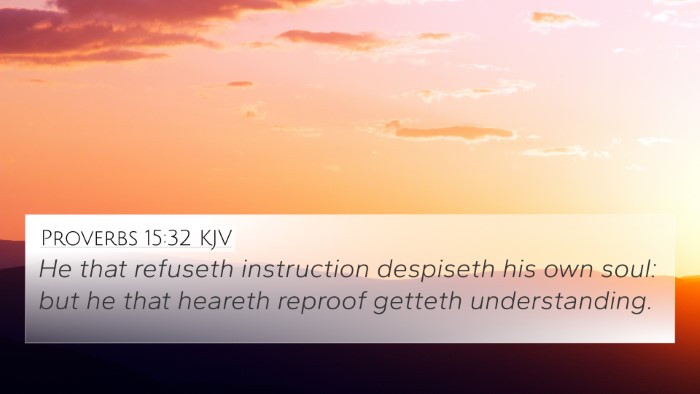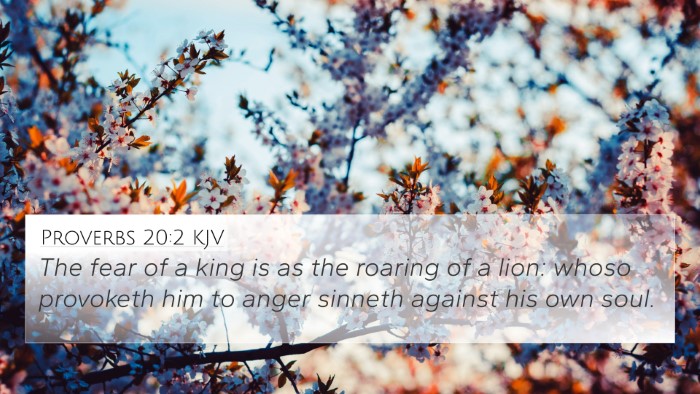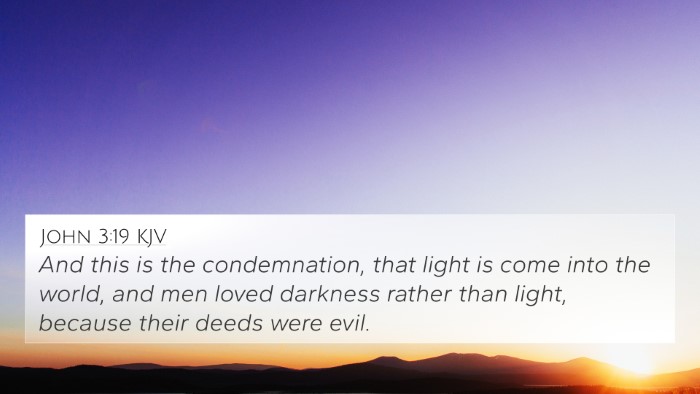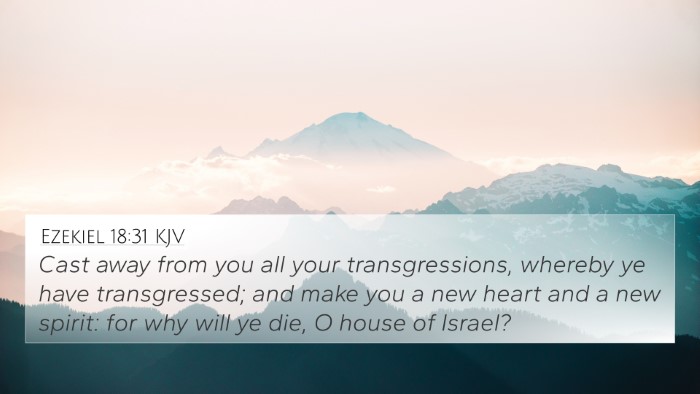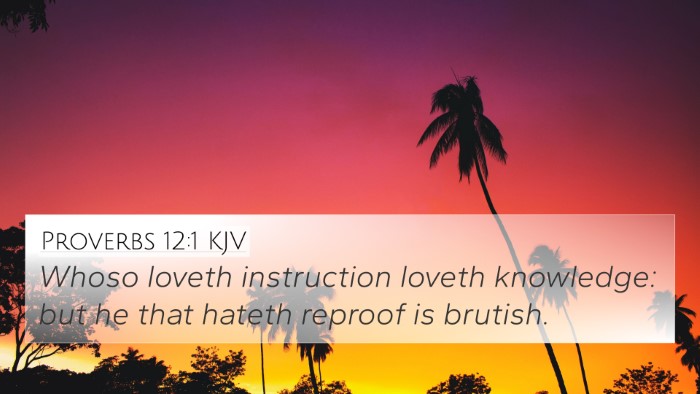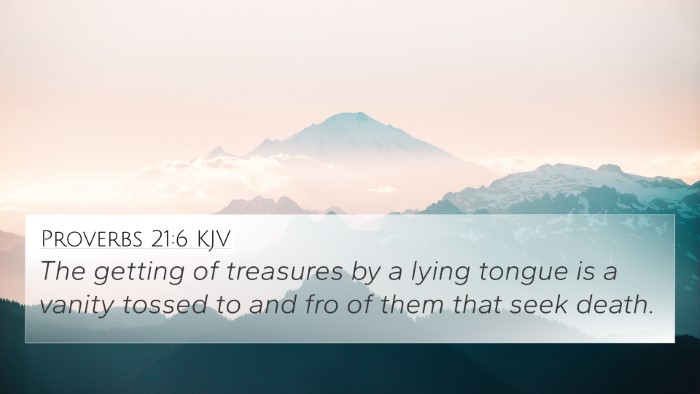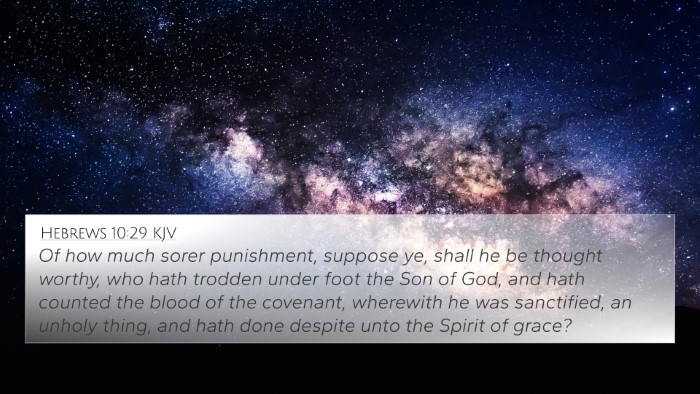Understanding Proverbs 8:36
Proverbs 8:36: "But he who sins against me wrongs his own soul; all those who hate me love death."
This verse presents a profound warning about the consequences of rejecting wisdom and embracing folly. By exploring the insights of various public domain commentaries, we can gain a deeper understanding of the meaning behind this verse.
Commentary Insights
-
Matthew Henry's Commentary:
Henry emphasizes that this verse highlights the intrinsic connection between wisdom and life. To sin against wisdom is to harm one's soul, as it leads to spiritual death. The rejection of this wisdom reflects a deep hatred for it, ultimately resulting in a choice for death rather than life.
-
Albert Barnes' Notes:
Barnes underlines the notion that the affirmation made in this passage is not merely about physical death but spiritual death. He notes that choosing to disregard wisdom results in dire consequences not just in this life but in the afterlife, as rejecting true understanding equates to rejecting God Himself.
-
Adam Clarke's Commentary:
Clarke discusses the dual aspect of this verse, noting that the "soul" refers to the inner being of a person. Sinning against wisdom is a personal affront that leads one down the path of destruction. Clarke also connects this passage with the themes of moral integrity and the choices that lead to either life or death.
Thematic Connections
The verse profoundly relates to themes of wisdom versus folly, life versus death, and spiritual integrity. Through these motifs, it encourages readers to pursue wisdom as a foundation for a fulfilling and meaningful life.
Cross-References to Proverbs 8:36
Here are several Bible verses that underscore the themes and messages present in Proverbs 8:36:
- Proverbs 1:24-26: Wisdom calls out, but those who refuse her calls will face consequences.
- Proverbs 9:12: If you are wise, you are wise for yourself; if you scoff, you alone will bear it.
- Romans 6:23: The wages of sin is death, reinforcing the notion of death as a consequence of turning away from righteousness.
- Galatians 6:7: A man reaps what he sows, resonating with the principle of personal responsibility in choices.
- James 1:15: Sin, when it is finished, brings forth death, echoing the message of Proverbs 8:36.
- John 10:10: Christ speaks of giving life more abundantly, contrasting the choices leading to death.
- Deuteronomy 30:19: God sets before us life and death, urging us to choose life.
Conclusion
The teachings encapsulated in Proverbs 8:36 serve as a timeless reminder of the importance of wisdom and the consequences of its rejection. Understanding this verse in light of its cross-references broadens our comprehension of its implications, enhancing our approach to Biblical study.
By employing tools for Bible cross-referencing and engaging in cross-reference Bible studies, one can uncover rich themes and connections that illuminate the depth of scripture.



